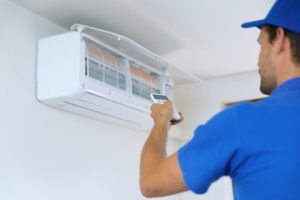Pianos require specialized handling to prevent damage during relocation. The best way to move a piano is by hiring local movers with experience in handling these delicate instruments.

The type of piano also influences moving costs. Grand pianos are heavier and more expensive to move than upright pianos. Other factors like navigating tight doorways or staircases can increase the cost of a move. Contact Mountain Piano Moving Company for professional help.
Relocating a piano requires professional expertise and the right equipment. Attempting to move this large, bulky musical instrument on your own can result in major damage and injury. The movers have over 30 years of experience handling pianos, including upright and grand, both modern and antique. They can disassemble and reassemble the keys, pedals, legs and lid; wrap, crate and transport your piano to its new home without incident.
It’s important to note that not all movers offer this service. It’s best to find a company that has been in business for years and has satisfied customers. This will ensure that they’ve learned all of the tricks of the trade and can provide you with exceptional service.
Despite their size, a piano can be extremely delicate to handle. It’s also heavy and awkward. The last thing you want is to damage this expensive, beautiful piece of furniture. That’s why you should hire a reputable piano moving company to help you get your prized possession from one place to another.
The cost of hiring a professional piano moving company is well worth the peace of mind that you’ll enjoy knowing your piano will arrive safely at its new home. Plus, if you’re going to tip your piano movers for their hard work, it helps to have a clear understanding of what constitutes an above-average or great service experience. For instance, a standard service industry tip of 15-20% is often considered appropriate. However, if that doesn’t suit your budget, you can always show your appreciation with other methods.
Insurance
A reputable piano moving company should have comprehensive insurance coverage to protect their clients in case of damages. It’s best to ask for details about their insurance policy before hiring them. If they are hesitant to provide you with the information, you may want to look elsewhere for a piano mover.
Damages to your precious piano during the relocation process can cost you thousands of dollars. Not only will you need to repair scratches, dents, and internal components of your instrument, but you might also incur costly repairs to your property as well. In case of an accident, you will need to cover these costs out of your own pocket if you don’t have the right kind of insurance.
Whether you’re moving an upright or a grand piano, proper insurance protection is essential to ensure the safety of your instrument. Basic household insurance might not be enough to cover a pricier item like a piano, so look for additional coverage that’s tailored specifically to specialized relocation services.
You should also find out what precautions they take during the relocation process to minimize environmental damage. For example, some companies use climate-controlled trucks to avoid fluctuations in temperature that can affect the internal workings of your piano. You should also ask if they have storage facilities for instruments that don’t have their final destination yet.
Finally, you should also ask about their pricing structure. Some piano movers will offer flat-rate estimates while others may charge per hour. Ask about the different options they have to choose from, such as full replacement value or liability coverage insurance. Full replacement value coverage will reimburse you for your piano’s entire worth if it gets damaged or lost during the move. Liability coverage is a cheaper option that offers compensation based on the value of your instrument.
Custom Packaging
Whether it’s a baby grand, full-sized grand or spinet piano, these instruments require specialized equipment and expertise to ensure safe transport. Choosing a piano moving company that has a background in high-end moves is essential for ensuring your instrument arrives at its destination in pristine condition.
Piano movers use special crates and padded blankets to protect your instrument during transportation. This prevents damage caused by vibrations and bumps during transport, and it protects delicate finishes and components. Using specialized packing also helps prevent moisture and dust from reaching your piano during transport.
A professional piano mover will use a variety of tools to make the process as easy as possible for you. For example, they may provide a piano dolly that has a wide base and four or six wheels to facilitate easier movement. They can also provide flat, padded boards to help you slide the piano onto and off of the dolly. These tools make the process much faster and less stressful than trying to lift and maneuver your piano by hand.
Specialized movers also have the expertise to disassemble your piano when necessary. This helps to reduce the risk of damaging parts during transport, and it can also make it easier to navigate stairs or tight spaces. The movers will then reassemble the piano at your new home or venue, making sure everything is properly aligned and functioning correctly.
High-end pianos are often tuned to precise standards, so even minor disturbances during transport can affect their sound quality. Specialized piano movers use the best techniques to protect these exquisite instruments during transport, and they will also offer climate-controlled storage for long-term storage.
Disassembly
Relocating a piano is complex, and one mistake during the process can damage it beyond repair. It requires specialized equipment and expert handling techniques.
Before movers start disassembling the piano, they will clear a path through the house to maneuver it through doors, hallways, and stairs. They will also put down protective coverings to prevent scratches on the floors. They will also remove the lid and disassemble the music rack, key cover, and pedals to prevent them from being damaged during the move.
Once the piano is fully disassembled, movers will place it on a piano board and roll it to the truck. They will then use furniture straps to secure the board to the truck and reattach the legs to the keyboard and lyre. They will also remove the keyboard and make sure that all components are labeled for reassembling.
While some people may try to move a piano on their own, it is not recommended. Professional movers have the equipment and experience to safely move and transport bigger items, such as pianos. They can handle a variety of different types of pianos, including upright and grand pianos.
Unless the piano is a spinet, most movers will place it on a piano dolly and move it to the vehicle or stairway. Using a dolly makes the process much faster and more efficient than lifting the piano by hand. In addition, it can reduce the risk of injury to movers and the instrument. If the piano is being moved over long distances, movers will use a truck and crate to protect it from weather conditions during transport. The crate will be custom built for the piano, and will include padded blankets to keep it safe from damage during transit.
Reassembly
Pianos are beautiful, versatile instruments that add distinguished character to a home and evoke emotion as well-loved family heirlooms. They’re also delicate, with sensitive internal components and polished surfaces that are easily damaged during transport. As such, moving a piano requires specialized knowledge and equipment, as well as a team of strong helpers. Attempting to move a piano on your own can result in costly damage and injury.
Getting your piano moved safely by professional piano movers saves you time, money and stress. The right company will have years of experience moving all types of pianos, from grand to upright and everything in between. They will know how to properly wrap and secure the instrument, as well as disassemble and reassemble it for safe transportation. They will also have a wide range of tools such as piano dollies, skid boards, and padded moving blankets to ensure the safety of your precious piano.
For an upright or baby grand piano, the movers will first carefully disassemble the legs and pedals and then wrap them individually in padded blankets. They will then place the piano on a custom skid board called a “piano board” and gently roll it over smooth surfaces or up or down stairs. If they must transport the piano across rough surfaces, they will put it on a dolly centered under its heaviest portion and use straps to keep it in place.
The movers will also remove the lid, music rack and key cover and disassemble the lyre (the part that holds the pedals). Then they’ll wrap and secure each piece individually to protect them from scratches during transport. Finally, they’ll load the piano into a truck using a ramp to avoid damaging it or its surroundings.

